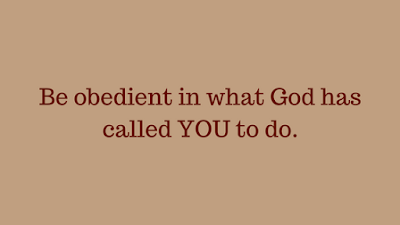by Amanda Cabot
As the weather improves and travel is less challenging, it
seems as if conferences are springing up as quickly as the dandelions in my
yard. Should you attend one? Probably, but before you invest your time and
money, why not spend a few minutes with my simple five-part quiz? The questions – and their answers – may give
you a different perspective.
Let’s get started. The
statements are designed for a “true” or “false” response.
1. The primary reason to attend a conference
is to meet agents and editors. False. While an agent or editor appointment can be
extremely valuable, in part because it might shorten the query process, your
primary reason for attending a conference ought to be to learn more about the
craft, marketing, or simply the state of the publishing industry. This is a learning opportunity.
2. To get your money’s worth from a
conference, you should attend every possible workshop. Since I told you that the reason for
attending a conference is to learn, you might think that the answer to this is
“true.” Not so. While I urge you to attend many workshops at
each conference, you also need to consider the very real possibility of brain
overload. Take time to relax and absorb
what you’ve learned. Sometimes this
means retreating to your room. Other
times, a few minutes chatting with other attendees might be enough. Be careful not to overdo. The last thing you want is to return home
exhausted, with all the workshops starting to blur in your mind.
3. The larger the conference, the better. If you were expecting me to say either “true”
or “false,” I’m going to disappoint you.
This is a “maybe.” While it’s
true that larger conferences typically offer more tracks and, therefore, more
workshops from which to choose the perfect ones for you, if the thought of
plenary sessions with thousands of other attendees makes you cringe, you’d be
better served by attending a smaller conference. Consider your comfort levels before you make
any decisions.
4. It’s not easy being a newbie at a
conference. Definitely true. Many conference organizers make a special
effort to identify first time attendees and ask their members to include them
in conversations, at meals, etc. But the
reality is that most writers are introverts, which means that facing hundreds –
perhaps thousands – of strangers is daunting.
The best way to avoid this problem is to ask one of your writing friends
to attend with you. Sometimes, though,
that’s not possible. What to do
then? Look around. You’re likely to see others who are sitting
or standing alone. Why not approach
them? One time when I did that, it
became the start of a friendship that’s spanned decades.
5. Every workshop you attend will be valuable. Oh, if only that were true! I’ve attended a number of workshops where the
blurb sounded fabulous, the speaker had outstanding credentials, and I found
myself nodding off from boredom. My
first reaction was anger, as in “What a waste of time and money,” but then I
realized that the problem was mine. I’d
set unrealistic expectations. Not every
workshop will be perfect for you, just as not every conference is the right one
for you.
What should you expect from a conference? My new criteria for judging whether or not a
conference was worthwhile is this: if I learn one thing or make one good
contact, it was a success. I can’t
remember a single workshop I attended at the conference where I met the woman
who became my friend and critique partner.
In fact, I remember returning home and telling my husband that it was at
best a mediocre conference. And yet,
meeting Diane made it one of the best conferences I’ve attended.
So, my friends, consider what you hope to gain from a
conference, calibrate your expectations, choose carefully, and then have
fun. Because, when it’s all over, what
you’ll remember is whether or not you enjoyed your time at the conference.
Blurb
There is no
such thing as an impossible dream . . .
Catherine Whitfield is sure that she will
never again be able to trust anyone in the medical profession after the local
doctor’s treatments killed her mother. Despite her loneliness and her broken
heart, she carries bravely on as Cimarron Creek’s dutiful schoolteacher,
resigned to a life where dreams rarely come true.
Austin Goddard is a newcomer to Cimarron
Creek. Posing as a rancher, he fled to Texas to protect his daughter from a
dangerous criminal. He’s managed to keep his past as a surgeon a secret. But
when Catherine Whitfield captures his heart, he wonders how long he will be
able to keep up the charade.
With a deft hand, Amanda Cabot teases out
the strands of love, deception, and redemption in this charming tale of dreams
deferred and hopes becoming reality.
Author
Bio
Amanda Cabot is the bestselling
author of more than thirty novels including the Texas Dreams trilogy, the
Westward Winds series, the Texas Crossroads trilogy, A Stolen Heart, and Christmas
Roses. A former director of Information Technology, she has written
everything from technical books and articles for IT professionals to mysteries
for teenagers and romances for all ages.
Amanda is delighted to now be a fulltime writer of Christian romances,
living happily ever after with her husband in Wyoming.
Social
Media Links
Buying
Links




















